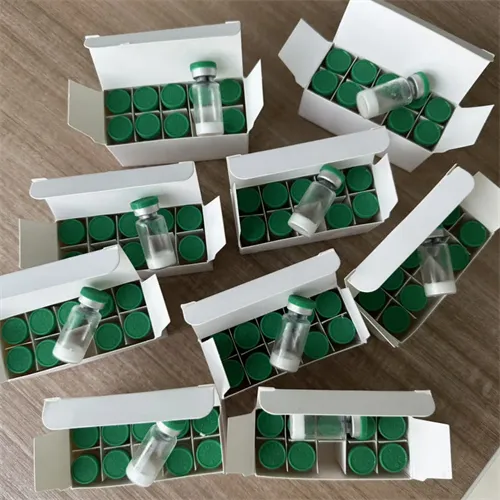Warning: Undefined array key "title" in /home/www/wwwroot/HTML/www.exportstart.com/wp-content/themes/1198/header.php on line 6
Warning: Undefined array key "file" in /home/www/wwwroot/HTML/www.exportstart.com/wp-content/themes/1198/header.php on line 7
Warning: Undefined array key "title" in /home/www/wwwroot/HTML/www.exportstart.com/wp-content/themes/1198/header.php on line 7
Warning: Undefined array key "title" in /home/www/wwwroot/HTML/www.exportstart.com/wp-content/themes/1198/header.php on line 7
- Afrikaans
- Albanian
- Amharic
- Arabic
- Armenian
- Azerbaijani
- Basque
- Belarusian
- Bengali
- Bosnian
- Bulgarian
- Catalan
- Cebuano
- China
- China (Taiwan)
- Corsican
- Croatian
- Czech
- Danish
- Dutch
- English
- Esperanto
- Estonian
- Finnish
- French
- Frisian
- Galician
- Georgian
- German
- Greek
- Gujarati
- Haitian Creole
- hausa
- hawaiian
- Hebrew
- Hindi
- Miao
- Hungarian
- Icelandic
- igbo
- Indonesian
- irish
- Italian
- Japanese
- Javanese
- Kannada
- kazakh
- Khmer
- Rwandese
- Korean
- Kurdish
- Kyrgyz
- Lao
- Latin
- Latvian
- Lithuanian
- Luxembourgish
- Macedonian
- Malgashi
- Malay
- Malayalam
- Maltese
- Maori
- Marathi
- Mongolian
- Myanmar
- Nepali
- Norwegian
- Norwegian
- Occitan
- Pashto
- Persian
- Polish
- Portuguese
- Punjabi
- Romanian
- Russian
- Samoan
- Scottish Gaelic
- Serbian
- Sesotho
- Shona
- Sindhi
- Sinhala
- Slovak
- Slovenian
- Somali
- Spanish
- Sundanese
- Swahili
- Swedish
- Tagalog
- Tajik
- Tamil
- Tatar
- Telugu
- Thai
- Turkish
- Turkmen
- Ukrainian
- Urdu
- Uighur
- Uzbek
- Vietnamese
- Welsh
- Bantu
- Yiddish
- Yoruba
- Zulu
Nov . 06, 2024 19:38 Back to list
Bio-based Propylene Glycol as a Sustainable and Eco-Friendly Alternative for Various Applications
Propylene Glycol A Bio-Based and Eco-Friendly Alternative
In the quest for sustainable development, the search for eco-friendly alternatives to conventional chemicals has accelerated. Within this landscape, bio-based propylene glycol (PG) has emerged as a promising candidate, offering a variety of applications in numerous industries while minimizing environmental impact. This article delves into propylene glycol's properties, its conventional production methods, the shift towards bio-based production, and its implications for sustainability.
Understanding Propylene Glycol
Propylene glycol is a colorless, odorless, and hygroscopic liquid with a wide range of uses. It is commonly employed in food processing, pharmaceuticals, cosmetics, and industrial applications. Propylene glycol’s unique properties, such as its ability to dissolve solvents and retain moisture, make it an indispensable ingredient in many formulations. However, traditional methods of propylene glycol production primarily rely on fossil fuels, contributing to a significant carbon footprint and environmental degradation.
Traditional Production Methods
Historically, propylene glycol has been produced through a synthetic process involving petroleum-derived propylene oxide. This method not only consumes non-renewable resources but also generates activities that are harmful to the environment. It releases greenhouse gas emissions and poses risks associated with petroleum extraction and refinement. As the world shifts towards renewable energy and sustainable practices, the downsides of reliance on fossil fuels have prompted a search for greener alternatives.
The Rise of Bio-Based Propylene Glycol
At the forefront of these alternatives is bio-based propylene glycol. Produced from renewable resources such as corn starch, sugar cane, and other biomass, bio-based PG provides a sustainable substitute to its petroleum-based counterpart. The production of bio-based propylene glycol involves fermentation processes where sugars are converted into glycerol and then transformed into propylene glycol through a series of chemical reactions. This method not only reduces reliance on fossil fuels but also lessens greenhouse gas emissions throughout the production cycle.
propylene glycol bio-based an eco-friendly alternative

Environmental Advantages
The shift towards bio-based propylene glycol comes with numerous environmental benefits. First, using renewable resources for its production decreases the carbon footprint significantly. By opting for bio-based PG, industries can minimize their contributions to climate change while fostering a more sustainable economy. Additionally, bio-based propylene glycol is biodegradable, meaning it can break down naturally without posing long-term impacts on the ecosystem.
Moreover, the sourcing of raw materials can be managed sustainably. For instance, crops such as corn can be cultivated using sustainable agricultural practices, allowing for responsible land use and preservation of natural resources. This interconnectedness between industry and agriculture promotes a circular economy where waste is minimized, and resources are utilized more efficiently.
Economic Implications
Transitioning to bio-based propylene glycol also brings economic advantages. As consumers and businesses increasingly prefer environmentally friendly products, the demand for bio-based chemicals continues to rise. This shift opens new market opportunities for producers and encourages innovation in production technologies. Increasing investments in bio-based technologies create jobs and stimulate economic growth in rural areas where many bio-crops are grown.
Conclusion
In conclusion, bio-based propylene glycol represents a significant advancement in the quest for sustainable chemical alternatives. By reducing our dependency on fossil fuels and promoting the use of renewable resources, bio-based PG not only serves a multitude of practical applications across various industries but also aligns with global sustainability goals. As awareness and demand for eco-friendly products expand, propylene glycol stands out as a vital component of a greener future. The transition towards bio-based alternatives is not just a trend; it is a necessary step in ensuring the health of our planet for future generations. In the ongoing dialogue about sustainability, bio-based propylene glycol shines as a beacon of innovation, reminding us that with creativity and resourcefulness, a more sustainable world is within our reach.
Latest news
-
Certifications for Vegetarian and Xanthan Gum Vegetarian
NewsJun.17,2025
-
Sustainability Trends Reshaping the SLES N70 Market
NewsJun.17,2025
-
Propylene Glycol Use in Vaccines: Balancing Function and Perception
NewsJun.17,2025
-
Petroleum Jelly in Skincare: Balancing Benefits and Backlash
NewsJun.17,2025
-
Energy Price Volatility and Ripple Effect on Caprolactam Markets
NewsJun.17,2025
-
Spectroscopic Techniques for Adipic Acid Molecular Weight
NewsJun.17,2025

